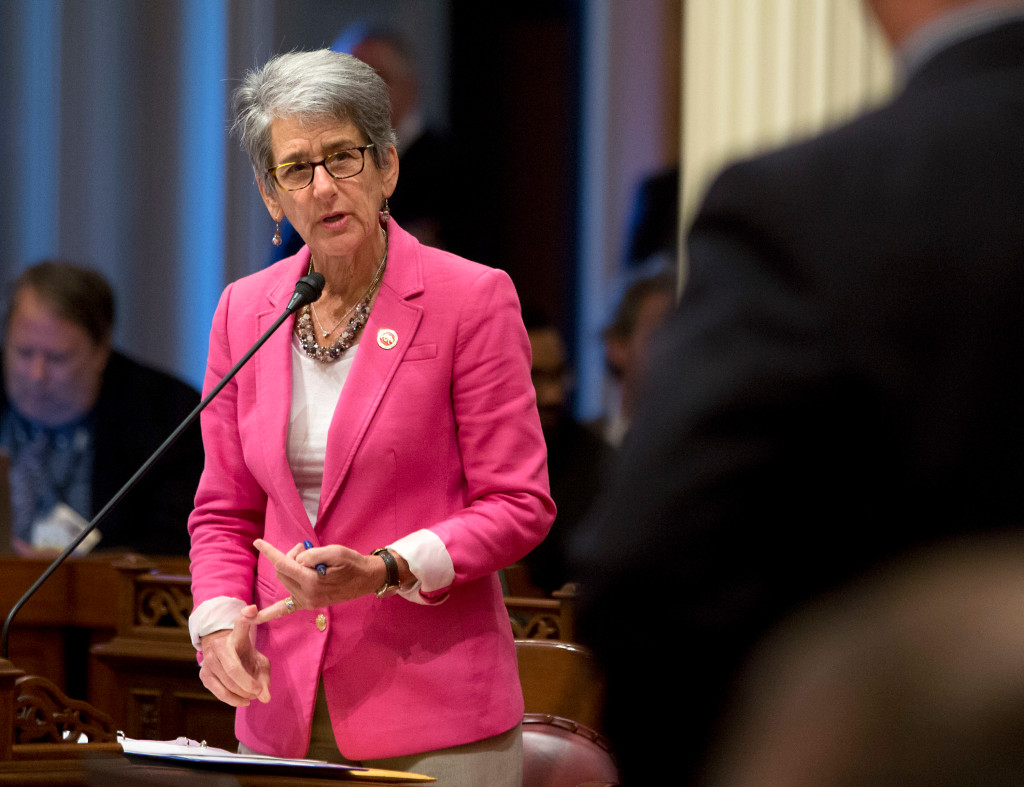Apple, Alphabet, Facebook and Tesla each will need to add one more woman to their board of directors by 2021 under a first-in-the-nation law just signed by California Gov. Jerry Brown, but some other well-known companies in the state have a lot more work to do than that.
The law requires a publicly held company to have one woman on its board by 2019. By 2021, boards with five members must have at least two women, and boards with six members or more must have at least three women.
 Many of Silicon Valley’s largest companies — which have long faced pressure to diversify their workplaces, leadership and governance — have at least one woman on their boards. But many other companies in the Bay Area and state have some catching up to do to make sure they’re complying with the law in three years.
Many of Silicon Valley’s largest companies — which have long faced pressure to diversify their workplaces, leadership and governance — have at least one woman on their boards. But many other companies in the Bay Area and state have some catching up to do to make sure they’re complying with the law in three years.
Of California’s 457 publicly traded companies, 97 — or 21 percent — have no women on their boards, according to an analysis by proxy advisory firm Institutional Shareholder Services, which used data from the companies’ most recent filings.
“What’s interesting to us is the small proportion of subject companies that currently complies,” said John Roe, managing director and head of ISS Analytics at ISS, on Friday, referring to the 2021 requirement. “Less than half of the large-cap S&P 500 companies comply — and it gets worse from there. Overall, fewer than a quarter of S&P 1500 companies — and only about 15 percent of Russell 3000 companies — has at least three women on the board.” Of companies on the Nasdaq, the tech-heavy stock index, Roe said only 9 percent of California companies meet the 2021 requirement.
Some Bay Area companies that have no female members on their board include San Jose-based DVR maker TiVo and Pleasanton-based life-sciences cloud company Veeva Systems. Another well-known California company that has no female board members is shoemaker Skechers, whose headquarters is in Manhattan Beach.
A TiVo spokeswoman said Thursday that because the company is pursuing strategic alternatives such as a sale, it is “not actively looking for new Board members at this time.” Veeva Systems has not returned a request for comment.
Some California companies with familiar names have one woman on their boards and must therefore add two by 2021. In the Bay Area, those companies include Roku, Pandora, VMware, Broadcom, Workday and Dolby. Elsewhere in the state, those companies include The Cheesecake Factory and Guess.
Why have some companies been slow to act when, as studies cited by the law shows, companies perform better financially when there are women on their boards?
“I don’t agree with the contention that qualified women don’t exist, they’re just not visible in the networks of those who typically get tapped to be on boards,” said Rosalind Chow, associate professor of Organizational Behavior at the Tepper School of Business at Carnegie Mellon University, on Thursday. Boards and companies “have to be willing to go out of their comfort zones,” she added.
Thomas Kellerman, senior counsel for Morgan Lewis in Palo Alto, pointed out that institutional investors such as CalPERS, which manages the largest public pension fund in the nation, have for years been urging companies to appoint women to their boards.
“In 2018, CalPERS voted against 438 directors at 141 companies because of their failure to listen” to the agency on diversity issues, he said, citing a CalPERS investment director.
In each of the past four years, at least 26 companies have received shareholder proposals related to board diversity, according to Roe. But he noted that a majority of the proposals were withdrawn during each of those years because companies came to some sort of agreement with their shareholders.
Chambers of commerce and other business groups oppose the new law, which the governor acknowledged Sunday might not withstand legal challenges. Among the possible legal obstacles, besides the questions about its constitutionality: Many companies with headquarters in California, including Alphabet, Facebook and many more, are incorporated in Delaware, a state with tax laws that favor businesses.
“Can the California Legislature force a Delaware corporation to govern itself according to California law?” Kellerman asked. The law, as written, applies to “a publicly held domestic or foreign corporation whose principal executive offices, according to the corporation’s SEC 10-K form, are located in California.”
Whatever the outcome of the law, some Silicon Valley companies are basking in the renewed spotlight on gender diversity it has brought.
HP Inc., the hardware company that was split off from the iconic tech giant, has four women on its 10-member board. That was a conscious decision from the start — as in when the company split in two in 2015.
“We had the opportunity to just do it right,” said Lesley Slaton Brown, chief diversity officer at HP, on Thursday. “We know what the data says. It’s as much of a business imperative as much as it is a value issue.”
Brown said the search firms HP hired to help find candidates for its board first suggested “older white males, former CEOs,” so the company “cast the net broader” by working with some minority organizations and asking them for recommendations.










